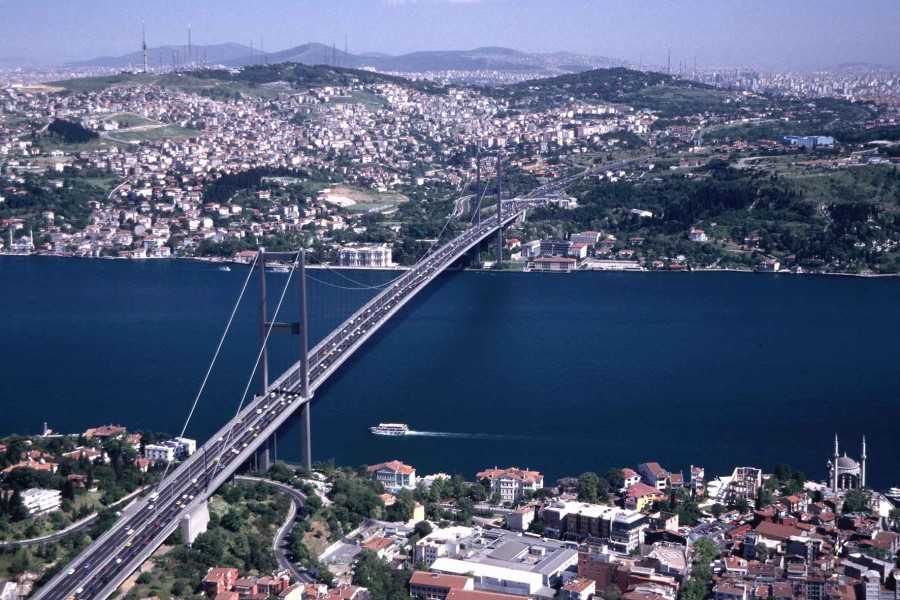Turkey may develop fighter aircraft with S Korea, Indonesia
ÜMİT ENGİNSOY
ANKARA – Hürriyet Daily News
Keen to bolster the capabilities of its Air Force, Turkey is interested in developing a new fighter aircraft with South Korea and Indonesia, senior Turkish and South Korean officials have said.
“There have been some preliminary talks about our possible participation in the KF-X program,” a senior Turkish procurement official told the Hürriyet Daily News & Economic Review over the weekend. “We are investigating the feasibility and possibilities of this program.”
Maj. Gen. Choi Cha-kyu, director general of South Korea’s aircraft program bureau at the Defense Acquisition Program Administration, said in September that Ankara was seriously considering taking part in the KF-X program.
“There will be a requirement [in Turkey] to replace the older fighters with newer ones by 2020,” the daily Korea Times quoted Choi as saying at the time. “Once on board, Turkey is expected to bear the same amount of development costs as Indonesia.”
The KF-X is a mainly South Korean program to develop an advanced multi-role fighter for the Air Forces of South Korea and Indonesia. It originally was launched in 2001, but then postponed because of financial and technological difficulties. The program will start again next year with the consent of budget authorities.
South Korea will provide 60 percent of the KF-X development costs worth some $4.2 billion, with the rest to come from other governments or corporate partners. About 120 KF-Xs would be built initially and more than 130 aircraft would be produced additionally after the first-phase models reach operational capability.
Under a memorandum of understanding signed in mid-July, Indonesia agreed to pay 20 percent of the bill and to buy about 50 KF-X planes when mass production begins.
South Korea also is seeking to receive technology transfers from Western aerospace firms. One possible corporate partner is Sweden’s Saab.
Other options
Turkey already has selected the U.S.-led F-35 Joint Strike Fighter Lightning II as its next-generation fighter aircraft type. It plans to buy about 100 F-35 aircraft worth nearly $15 billion. Many Turkish companies are members of the nine-nation Joint Strike Fighter consortium of nine Western nations, and are producing parts for the aircraft.
Lockheed Martin, the U.S. company leading the Joint Strike Fighter program, wants Turkey to increase the number of F-35 planes it plans to buy to 120 from 100. Turkey also will receive 30 F-16 Block 50 fighters from Lockheed as a stop-gap solution until F-35 deliveries begin around 2015.
But Turkish officials have said they are open to participating in one more future international fighter aircraft program.
Turkey also is facing pressure from Italy, a close defense partner, to buy the Eurofighter Typhoon, made by a European consortium including companies from Italy, Britain, Germany and Spain.
Giovanni Bertolone, executive vice president for operations at Finmeccanica, a top Italian industrial conglomerate, in early December called on Turkey to jointly produce the next phase of the Eurofighter. Finmeccanica is the parent company of Alenia Aeronautica, one of the makers of the Eurofighter.
Bertolone said the F-35 and the Eurofighter had different functions, and that Turkey could accommodate both fighters. The Eurofighter has been designed mainly as an air-to-air fighter while the F-35 is more suitable for air-to-ground missions.
In the event Turkey decides to buy the Eurofighter, these aircraft would replace the older U.S.-made F-4E Phantoms, recently modernized by Israel.
“We’re encouraging Turkey to follow the examples of Britain and Italy, which will have both aircraft,” Bertolone said. “Air-to-air fight capability is important, and we think this situation will gain prominence.”
Many analysts believe that the planned South Korean-led KF-X also would be suitable for air-to-air fighting.





